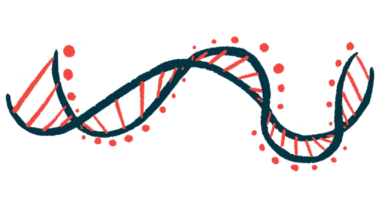FPWR Webinar Highlights New PWS Research, Funding for Spring 2021

The goal of the Foundation for Prader-Willi Research (FPWR) is to fund and support studies that will help “to eliminate the challenges” faced by people with the rare genetic disease, its leadership said in a recent webinar highlighting the FPWR’s ongoing studies and other projects.
To that end, Susan Hedstrom, the foundation’s executive director, used the webinar, which she moderated, to discuss with caregivers and advocates five newly funded FPWR grants given in the spring of this year. The invited speaker was Theresa Strong, PhD, the FPWR’s director of research programs. Both Hedstrom and Strong are parents of children with Prader-Willi syndrome (PWS).
“FPWR’s mission is to eliminate the challenges of PWS through the advancement of research and therapeutic development,” Strong said.”Everything we do is really aimed at advancing research so that we can get new treatments for our kids with PWS — kids and young adults.”
Ongoing research and advocacy
To assess how DNA variants across the genome affect the disease’s symptoms, severity, and treatment response, the FPWR recently launched its PWS Genome Project.
“Our ultimate goal here is to have a more personalized understanding of the severity of the symptoms that an individual with PWS will experience,” Strong said. While results will be years in the making, the FPWR is planning to take the first steps by recruiting 50 individuals in a pilot phase of this Genome Project.
All participants must first enroll in the Global PWS Registry — a comprehensive database of PWS patients with yearly surveys about their experiences. According to Strong, the registry “is one of the most important ways that we can gather information.”
“There’s also a lot of activity going on with different clinicians across the PWS community looking at that Global Registry data, and so if you can update your surveys that is extremely helpful,” she added. The registry also allows parents “to keep a running record of [their] child’s medical history and stay up-to-date on research opportunities and clinical trial opportunities.”
Interestingly, the registry captured behavior changes in people with PWS during the COVID-19 pandemic, and that information was shared — compliant with patient privacy laws — with the U.S. Food and Drug Administration (FDA).
“I think that’s very important for [the FDA to understand COVID-19’s] impact on clinical trials,” Strong said, also noting to parents that, as they “participate in these surveys and add things to the Global Registry, it is really a way of advocating for new treatments for PWS.”
Regarding clinical trials, there are several therapies in the PWS space currently being tested, and the FPWR has a page dedicated to information about them.
Notably, the recently completed Phase 3 CARE-PWS (NCT03649477) trial tested Levo Therapeutics’ candidate LV-101 (intranasal carbetocin). The therapy showed some promise in addressing excessive hunger, known as hyperphagia, and behavioral problems in PWS patients.
In addition, Soleno Therapeutics’ diazoxide choline controlled release (DCCR) tablets showed mixed results in treating hyperphagia in the DESTINY PWS Phase 3 trial (NCT03440814).
The company currently is discussing with the FDA the appropriate next steps, given the agency’s request for an additional clinical trial of DCCR.
Together with the Prader-Willi Syndrome Association (PWSA), the FPWR petitioned the FDA to reconsider its request, citing the potential benefits of the treatment.
“We look forward to doing what we can as a patient community to help the FDA understand the medical needs in our community,” Strong said. In fact, the FPWR is involved in several advocacy initiatives for new PWS treatments.
FPWR grants and publications
The FPWR’s grant program has been ongoing since the foundation’s inception in 2003. According to Strong, the FPWR has, so far, invested more than $15 million in PWS research, supporting more than 191 projects in 13 countries. FPWR-supported scientists also have received more than $25 million in additional funding from outside programs.
“One of the ways that we measure how well our funds are being spent is what is coming out in the medical literature; what papers are being published, and how that information is being used to build and advance research,” Strong said. To date, FPWR-supported research has resulted in more than 195 publications.
Investigators from one FPWR-funded project recently published new data on caregiver burden, which, according to Strong, “is an important thing for the FDA to understand when they look at what they call ‘burden of disease’ — essentially how severe a disease can be for individuals.”
The data showed that hyperphagia and behavioral problems led to greater stress on caregivers and families. “That’s not a surprise to us, but it’s really important to have the hard data to take to the FDA so that they can understand,” Strong said, adding that the “FDA is very data-driven.”
The foundation also supports stem cell research for PWS. With FPWR funding, a team of scientists was able to create 3D brain-like organoids, or “mini-brains,” using human induced pluripotent stem cells derived from PWS patients. These mini-brains mimic the arcuate nucleus, a subregion of the hypothalamus section of the brain that’s involved in regulating hunger and satiety. These organoids were found to have decreased responsiveness to leptin, a hormone that inhibits hunger.
“This paper really builds on our growing knowledge of how the brain and brain function is different in PWS, and that’s important for understanding what new targets for therapy might be,” said Strong. Also, it provides “a potential model in which you could test and see if particular drugs kind of ‘correct’ things and bring them [PWS neurons] back more towards the way typical neurons behave.”
2021 Spring FPWR grants
For the spring 2021 grant cycle, the FPWR awarded $430,380 to five research projects.
One of these, led by Harold van Bosse, MD, an orthopedic surgeon at Shriner’s Hospital for Children, in Philadelphia, is titled “Adult Spine Alignment in Prader-Willi syndrome.” van Bosse received $71,280 to study typical spine alignment in individuals with PWS without spine deformity. Most children with PWS will develop spinal curvature, and many require spinal surgery, which is associated with a higher complication rate compared with surgery among typical individuals.
“We’re interested in this study because there’s really not been very much work done on what is kind of the ‘normal’ for PWS,” Strong said.
By determining PWS-specific spinal alignment values during surgical correction, and adhering to them, “the long-term goal is to reduce postoperative failures and improve the comfort of individuals who have to undergo surgery.”
Another project, “Orphan G-protein coupled receptors (GCPRs) and the neurobiology of hyperphagia in Prader-Willi syndrome: Role of GPR160,” will be led by Gina Yosten, PhD, a Saint Louis University professor.
The FPWR granted Yosten $108,000 to investigate the role of the cocaine and amphetamine regulated transcript (CART) protein in appetite regulation. CART is known to control appetite and body weight in lean and obese rodents; in addition, mutations in the CART-coding gene have been linked to human obesity.
The GPR160 protein helps CART signal brain cells to control appetite. However, the roles of CART and GPR160 have not been studied in PWS, and they may be potential therapeutic targets to reduce hyperphagia and obesity in PWS.
“The goal is to evaluate the role of CART in appetite regulation, and this will use a rat model of PWS,” Strong said. “It’s one of those pre-clinical studies just kind of testing if this is a new therapeutic avenue.”
Rodney Samaco, PhD, an assistant professor at the Baylor College of Medicine, in Houston, Texas, also received $108,000 in funding. His grant will be used for a project titled “Comparative Behavioral and Proteomic Analysis of Rat Snrpn and Magel2 models,” which will study the behavioral traits and protein profiles of rat models deficient for the Snrpn and Magel2 proteins. The genes for those proteins often are disrupted in PWS.
According to Strong, rats engage in more social interaction than mice, so they are more useful for looking at behavioral traits in animal models of the disease. The long-term goal of this project is ultimately to “enable the identification of potential therapeutic interventions,” she said.
Another funded project, this one more focused on PWS molecular biology, is titled “How is the Epitranscriptomic Signature of Active Agouti-Related Protein (AGRP) Neurons Disrupted in PWS?”
Hyperphagia in PWS is thought to stem from AGRP, or “hunger neuron” impairment. Donna M. Lehman, PhD, a professor at the University of Texas Health Sciences Center, in San Antonio, received $89,100 to examine disruptions in the code for modifications in RNA — the template for protein production — of PWS hunger neurons. Lehman’s research will using human hypothalamic AGRPs, which are created from PWS stem cells that typically lack the SNORD116 genomic region. This study will look at the profile of RNA in healthy neurons with SNORD116 as compared with PWS neurons.
“We know SNORD116 is really important in PWS, because whenever it’s lost, we get the characteristics of PWS,” Strong said. “But we don’t fully understand still what it’s doing, and understanding that might help us, again, [develop] new therapeutic targets.”
The final project on the list, titled “Regulation of PWS Genes in the Endocrine Pancreas,” will be led by Daniel Zeman-Meier, PhD, a scientist at the University of Basel, Switzerland. Zeman-Meier received $54,000 to study the role of PWS genes in pancreatic beta cells, which produce and secrete insulin and amylin.
The two hormones regulate food intake by inducing satiety in the brain. They both are activated by the protease PC1/3 — which has been shown to be reduced in research models of PWS.
According to Strong, this study is a new approach to assess how PWS gene deficiencies impact metabolism. It could lead, she said, to a new understanding of the pancreas’ role in PWS metabolic disruption.
“It’s kind of a first step in seeing how we can potentially modify the … function of the pancreas to help normalize metabolism in PWS,” she said.
Strong noted that all projects funded through the FPWR grant program are selected through two processes: a peer-review process, in which scientists evaluate the studies in terms of their scientific merit, and through an advocate review process, in which knowledgeable supporters in the community assess whether the projects are relevant to the PWS community.
“We try to combine the scientific review with the advocate review and select those projects that are both important to the community and scientifically sound,” Strong concluded.






